The Leyte Center for Development, Inc. (LCDE) is primarily a disaster response non-government and development-oriented organization (NGDO) working towards a citizenry-based disaster response and sustainable community development.
The Center was formerly established in November 1986 as the ILAW Resource Center (IRC). It traced its long standing history to the turbulent Marcos martial law years as the Integrated Lay Workers’ Association (ILAW) which worked towards conscientizing people for self-reliance and empowerment through research and socio-economic services.
It was registered with the Security and Exchange Commission (SEC) in May 1988 as the Leyte Center for Development and Education. In the same year, LCDE became an affiliate of the Citizens’ Disaster Response Network (CDRN), a broad nationwide coalition of disaster response NGDOs.
In April 1992, the Center’s thrust, programs and services shifted from development education to sustainable socio-economic community programs and disaster response/management due to the changing needs and conditions of the region. Thus, it evolved as the Leyte Center for Development, Inc. but retained its original acronym LCDE.
VISION
LCDE envisions an Eastern Visayas region where the people and their communities are free and able to decide for themselves on issues that affect them as they actively and meaningfully participate in the total process of developing a truly just and humane Philippine society.
LCDE commits to empower the basic and marginalized sectors and their communities, for them to be disaster prepared and capable in collectively rehabilitating themselves after every disaster and sustaining their efforts towards a better quality of life. In accomplishing this, it will be guided by the principles of –
MISSION
LCDE commits to empower the basic and marginalized sectors and their communities, for them to be disaster prepared and capable in collectively rehabilitating themselves after every disaster and sustaining their efforts towards a better quality of life. In accomplishing this, it will be guided by the principles of:
- Social responsibility
- Involvement and participation of people as principal actors
- Development oriented disaster response
- Value of relationships & teamwork
- Competence in undertaking services
PROGRAMS AND SERVICES
Disaster Preparedness and Mitigation
Preparedness and mitigation activities are geared towards preparing communities before a disaster strikes so that its effects are lessened. Three types of activities are launched to achieve such preparedness: a.) trainings b.) disaster response machinery (DRM) formation c.) socio-economic support services.
LCDE is an active proponent of community based disaster management. This approach stresses on building the capacities of the poor to respond to disasters and address the roots of their vulnerability.
Emergency Response
Emergency response includes activities implemented during disaster or immediately after it strikes in order to save lives and properties and minimize and /or stop the deterioration of the condition of the survivors. Specific activities include disaster monitoring, damage, needs and capacity assessment (DNCA) and Relief Delivery Operations (RDO).
Rehabilitation
During the post disaster phase, rehabilitation activities are facilitated to help family-survivors recover from the effects brought about by the disaster and thus provide support to the community’s development initiatives. These activities include short term projects which provide initiative benefits like animal, seed and farm tool dispersals as well as small-scale water technology installation which have immediate benefits in terms of farm productivity and household consumption.
Advocacy
Advocacy work of the Center aims to raise awareness of both the vulnerable as well as less vulnerable sectors on issues related to disasters and development both at the local and national levels. Although research and documentation work is primarily intended to provide data and information needs of the different service teams/desks and partner people’s organizations (POs), it will revolve around the aforementioned issues in order to pool material to support the Center’s advocacy efforts. Specific activities include data banking, disaster monitoring and documentation.
Community Health
Alternative health care is vital due to the dearth in government services for the poor. LCDE facilitates the training and development of community health workers as well as herbal medicine promotion.
AREA OF COVERAGE
Since its establishment in 1987, LCDE has since then, been rendering its services to the entire island of Leyte. However on June of 1997, It started to extend its services to the Island of Samar after it was chosen to be the caretaker of CRROS or the Center for the Relief and Rehabilitation of Samar, also a CDRN member.
CONTACT US
Brgy. Libertad, Palo, Leyte, Philippines
Tel. No. (053) 3250693
E-mail: lcde1988@yahoo.com
Website: http://lcde-ev.blogspot.com/
LATEST POSTS
[catlist id=30]


Leave a Reply